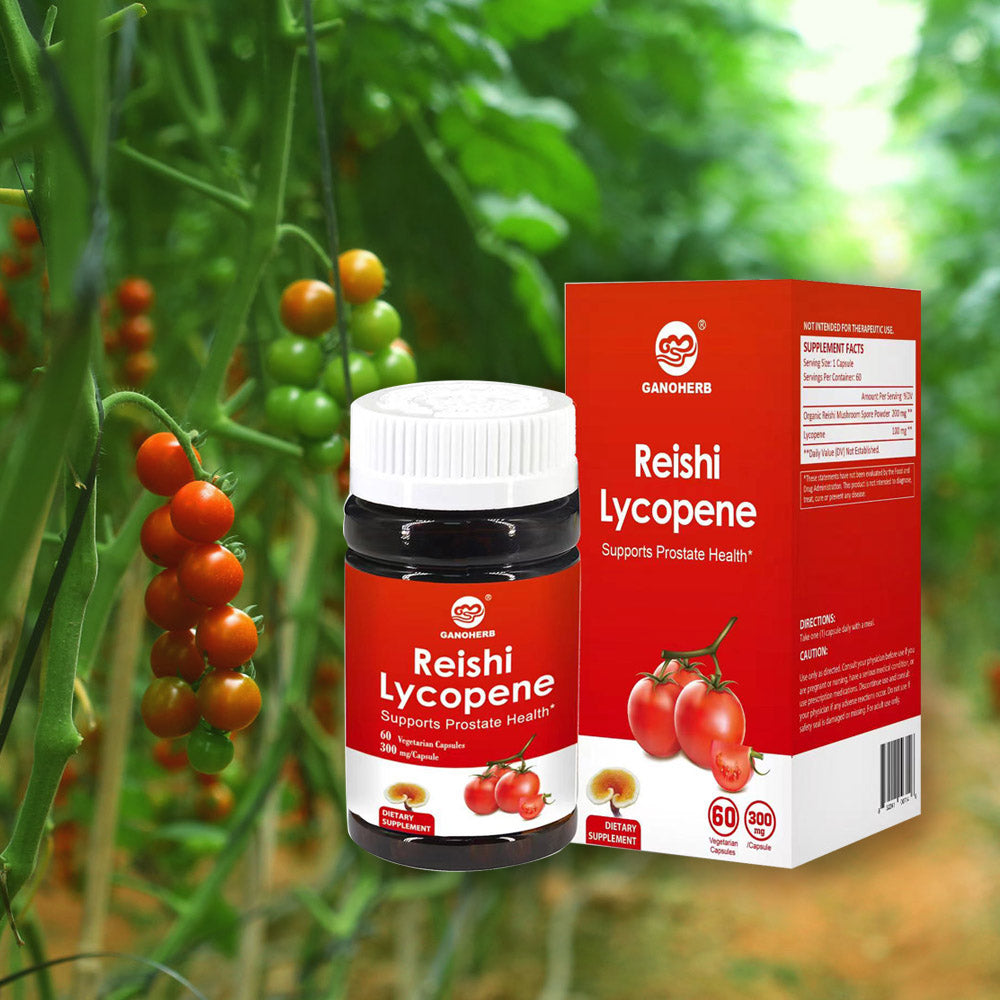Mushroom Coffee Alternatives: Are They the Next Big Thing in Your Morning Routine?
In recent years, the beverage industry has seen a surge in innovative drinks, and among them, mushroom coffee alternatives have gained attention. These products offer a unique twist on traditional coffee, blending familiar flavors with earthy notes from various mushrooms. Unlike typical coffee, mushroom coffee alternatives aim to provide a different experience without relying on common health claims. This article delves into mushroom coffee alternatives from multiple angles, exploring what they are, how they taste, and where you can find them. Whether you're curious about trying something new or simply want to expand your drink options, this guide covers the essentials without focusing on well-being aspects. By the end, you'll have a clearer picture of whether mushroom coffee alternatives fit into your lifestyle.

What Are Mushroom Coffee Alternatives?
Mushroom coffee alternatives refer to beverages that incorporate mushroom extracts or powders into a coffee-like base, often as a substitute for regular coffee. These products typically use mushrooms such as chaga, lion's mane, or reishi, but they are processed to blend seamlessly with coffee beans or other ingredients like chicory or dandelion root. The result is a drink that mimics the appearance and ritual of coffee but offers a distinct profile. Mushroom coffee alternatives are not meant to replicate coffee exactly; instead, they provide an option for those seeking variety in their daily routine. They come in various forms, including instant mixes, ground blends, and capsules, making them accessible for different preferences. These products offer a unique twist on traditional coffee, blending familiar flavors with earthy notes from various mushrooms. As more people explore alternative beverages, mushroom coffee alternatives have carved out a niche in the market, appealing to those who enjoy experimenting with their drinks.
Flavor Profiles of Mushroom Coffee Alternatives
When it comes to taste, mushroom coffee alternatives offer a range of flavors that set them apart from traditional coffee. Typically, these beverages have an earthy, slightly bitter note from the mushroom components, which can be balanced with the richness of coffee or other bases. For instance, blends with chaga might impart a woody, mild taste, while those with reishi could add a subtle sweetness. The overall flavor often depends on the ratio of mushrooms to other ingredients; some products emphasize the mushroom aspect, resulting in a more pronounced earthy character, while others blend it smoothly to avoid overpowering the coffee's natural notes. Many users describe mushroom coffee alternatives as having a smoother, less acidic finish compared to regular coffee, which can make them appealing for those sensitive to bitterness. However, taste is subjective, and some might find the mushroom undertones an acquired preference. To enhance the experience, people often add sweeteners or creamers, just as they would with standard coffee. Ultimately, the flavor of mushroom coffee alternatives is about exploration and finding a blend that suits your palate.
Preparation Methods for Mushroom Coffee Alternatives
Preparing mushroom coffee alternatives is straightforward and similar to making regular coffee, which adds to their appeal. Most products are available as instant powders or ground blends that can be brewed using common methods like drip machines, French presses, or even espresso makers. For instant versions, simply mix the powder with hot water and stir until dissolved—this makes it a convenient option for busy mornings. If using a ground blend, follow the same steps as with traditional coffee, adjusting the amount to taste. Some mushroom coffee alternatives come in single-serve pods for compatibility with popular pod-based systems. Additionally, cold brews can be made by steeping the blend in cold water overnight, resulting in a smoother, less bitter drink. The key is to experiment with brewing times and temperatures to achieve the desired strength and flavor. Unlike some specialty beverages, mushroom coffee alternatives don't require special equipment, making them accessible for home use. This ease of preparation encourages people to incorporate them into their daily rituals without a steep learning curve.
Types of Mushrooms Used in Alternatives
Mushroom coffee alternatives utilize a variety of mushrooms, each contributing unique characteristics to the final product. Common types include chaga, known for its dark, crumbly texture and earthy flavor; lion's mane, which has a subtle, seafood-like note; and reishi, often described as slightly bitter and woody. Other mushrooms like cordyceps or turkey tail might also be used, depending on the brand and blend. These mushrooms are typically harvested from wild or cultivated sources, then dried and powdered to integrate into the coffee base. The selection process focuses on flavor compatibility and sustainability, rather than any functional properties. For example, chaga is often sourced from birch forests, while lion's mane is cultivated in controlled environments to ensure consistency. The mushrooms are processed to remove any raw, unpalatable elements, resulting in a fine powder that blends well with coffee grounds. This variety allows mushroom coffee alternatives to offer a diverse range of tastes and textures, catering to different preferences. By understanding the types of mushrooms used, consumers can choose blends that align with their flavor interests.

Availability and Brands of Mushroom Coffee Alternatives
Mushroom coffee alternatives are increasingly available through various channels, making them easy to find for interested consumers. Major online retailers, such as Amazon and specialty health food stores, often carry a wide selection of brands. Popular options include Four Sigmatic, Om, and Laird Superfood, each offering unique blends that highlight different mushroom combinations. These brands typically provide detailed descriptions of their products, focusing on ingredients and flavor notes rather than any additional claims. In physical stores, mushroom coffee alternatives can be found in sections dedicated to alternative beverages or coffee substitutes, often alongside items like herbal teas and grain-based drinks. Prices vary, with some premium blends costing more due to sourcing and processing methods, but there are budget-friendly options as well. Subscription services are also available, allowing regular delivery of favorite blends. The growing market for mushroom coffee alternatives means that new brands and products emerge frequently, providing ample choice for experimentation. Whether shopping online or in-person, consumers can easily compare options to find a mushroom coffee alternative that fits their taste and budget.
Cultural and Historical Context of Mushroom-Based Drinks
Mushroom-based drinks have a rich history in various cultures, long before mushroom coffee alternatives became popular. In regions like Siberia and parts of Asia, mushrooms such as chaga and reishi have been used in traditional beverages for centuries, often brewed as teas or tonics in communal settings. These practices were rooted in cultural rituals and local customs, rather than specific attributes. For instance, in some indigenous communities, mushroom infusions were part of seasonal gatherings or ceremonial events, highlighting their role in social bonding. Over time, these traditions influenced modern interpretations, leading to the development of mushroom coffee alternatives as a fusion of old and new. In Western markets, the adoption of mushroom-based drinks has been driven by a curiosity for global flavors and a trend toward plant-based options. This cultural exchange has made mushroom coffee alternatives a symbol of culinary innovation, blending historical practices with contemporary consumption habits. By appreciating this background, users can connect with the broader story behind their drink choices.
Environmental and Sourcing Considerations
The production of mushroom coffee alternatives often involves considerations related to sustainability and environmental impact. Many brands prioritize ethical sourcing, using mushrooms harvested from wild or organic farms to support biodiversity. For example, chaga is typically foraged from sustainable forests, while cultivated varieties like lion's mane are grown using methods that minimize waste. The processing of these mushrooms into powders or extracts also tends to focus on energy-efficient techniques, such as low-temperature drying, to preserve flavor without excessive resource use. Additionally, packaging for mushroom coffee alternatives is frequently designed with eco-friendly materials, like compostable bags or recyclable containers, to reduce plastic waste. Some companies partner with conservation groups to promote reforestation or habitat protection, aligning with consumer interests in environmental responsibility. By choosing mushroom coffee alternatives, individuals can support practices that emphasize ecological balance, though this is just one aspect of the overall product appeal. This focus on sourcing helps distinguish these beverages in a crowded market.
Comparing Mushroom Coffee Alternatives to Other Beverages
When stacked against other drinks, mushroom coffee alternatives hold their own in terms of uniqueness and versatility. Unlike traditional coffee, which is known for its robust, caffeine-driven profile, mushroom coffee alternatives often offer a milder, earthier experience that can be enjoyed at any time of day. Compared to herbal teas, they provide a coffee-like richness without the same level of bitterness, making them a middle ground for those transitioning between beverages. Energy drinks, on the other hand, focus on intense stimulation, whereas mushroom coffee alternatives aim for a more balanced approach in flavor and routine. Even against other plant-based coffees, like those made from grains or nuts, mushroom blends stand out due to their distinct mushroom infusion. This comparison isn't about superiority but about fit—mushroom coffee alternatives cater to people seeking variety and a break from the ordinary. They can be integrated into social settings, such as coffee breaks or casual gatherings, much like any other drink. By understanding how they compare, consumers can make informed choices based on personal preference.
Frequently Asked Questions
Q1: What exactly are mushroom coffee alternatives?
A1: Mushroom coffee alternatives are beverages that combine mushroom extracts or powders with a coffee base or similar ingredients, creating a drink that offers an earthy, unique flavor profile as an option to traditional coffee.
Q2: How do I prepare mushroom coffee alternatives at home?
A2: You can prepare them similarly to regular coffee—using instant powders mixed with hot water, or brewing ground blends with methods like drip machines or French presses. Adjust the amount to your taste for a customized experience.
Q3: Where can I buy mushroom coffee alternatives?
A3: They are widely available online on platforms like Amazon, as well as in specialty stores or health food sections of supermarkets. Brands like Four Sigmatic and Om are common choices to start with.
Q4: Do mushroom coffee alternatives taste like regular coffee?
A4: Not exactly—they often have an earthy, slightly bitter note from the mushrooms, which can be smoother and less acidic than traditional coffee. The taste varies by blend, so it's best to try a few to see what you prefer.
Q5: Are there different types of mushrooms used in these alternatives?
A5: Yes, common mushrooms include chaga, lion's mane, and reishi, each adding distinct flavors like woody, mild, or slightly sweet notes to the beverage, depending on the blend.
Q6: Can I use mushroom coffee alternatives in recipes?
A6: Absolutely! They can be incorporated into baked goods, smoothies, or sauces to add a unique flavor twist, similar to how you might use coffee in cooking.
By exploring mushroom coffee alternatives from these angles, you can decide if they're a worthwhile addition to your drink repertoire. Remember, it's all about personal taste and experimentation—so why not give one a try?











